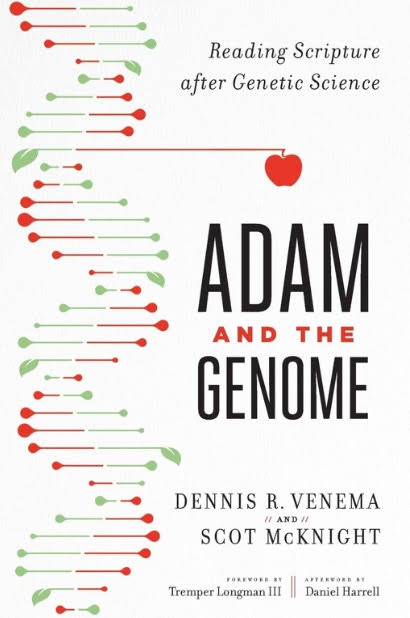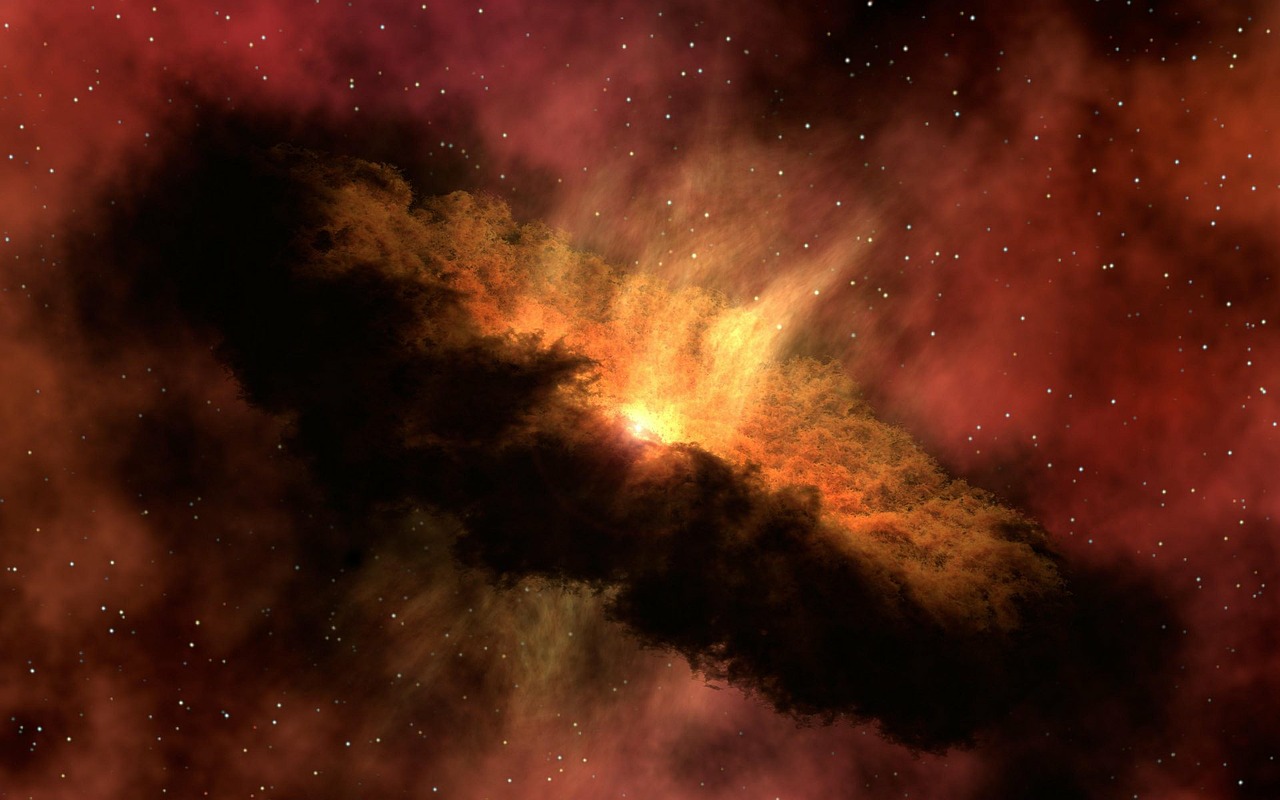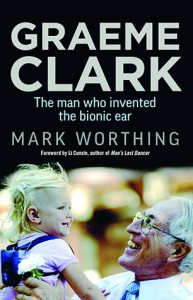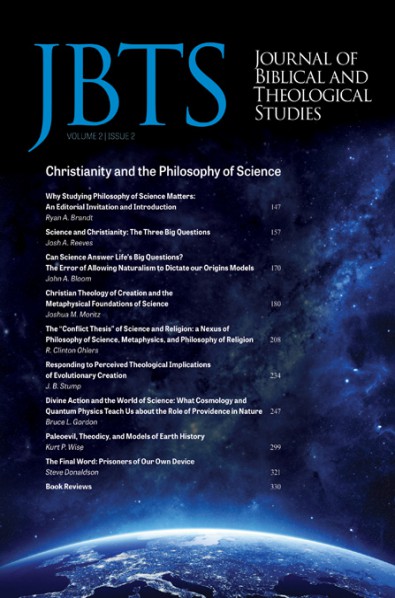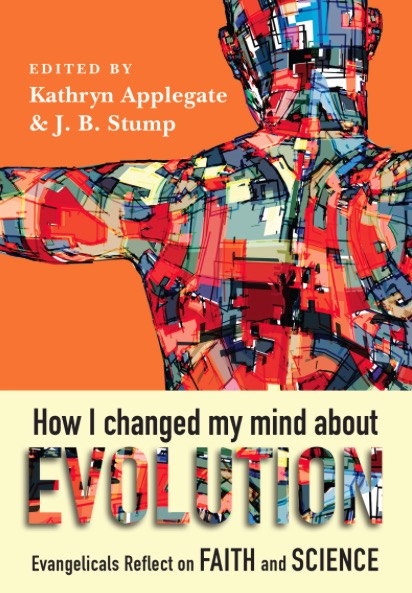
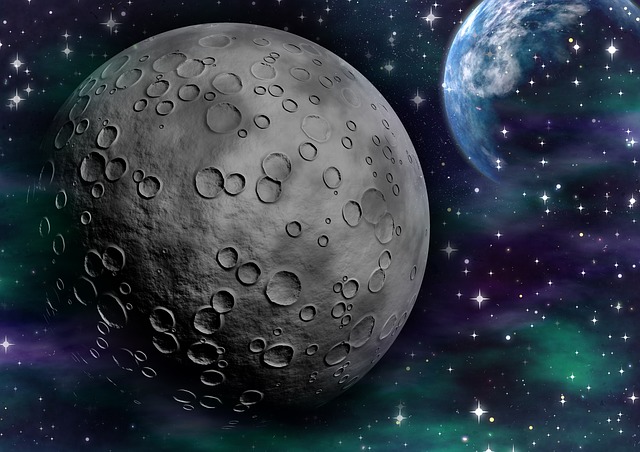
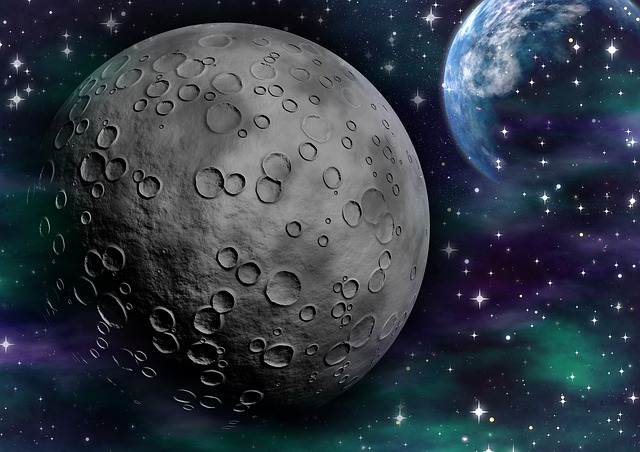
Science and Christian Faith – Conceptions and Misconceptions
Allan J Day, January 2000
Science and Christian Faith— Conceptions and Misconceptions
Allan J Day
Allan J Day is Emeritus Professor of Physiology, the University of Melbourne, a Senior Academic Fellow, Ridley College, and a Fellow of ISCAST.
Abstract
It is widely believed, by many in the secular world and not a few in the church, that science and Christian belief represent mutually incompatible views of reality; that they are strange bedfellows. The inappropriateness of this approach to science and Christian faith is considered in this paper. It is asserted that science and faith are complementary approaches to reality, representing two sides of the same coin—asking different questions.
A brief history of the apparent conflict is traced and set against the background of the history of science and its development. In examining these issues the nature of science and its intrinsic limitations are looked at; concerned as it is with ‘‘how’ questions rather than ‘‘why’’ questions. In considering the relationship between science and faith, some of the implications of the new physics, and the new natural theology that arise from it, are raised, as are the changed patterns of scientific determinacy and quantum physics.
These have implications for understanding something of God’s activity in the world.
It is concluded that, science and faith not only complement each other, but need each other to give a full view of reality. One can therefore be both a scientist and a Christian believer, without any need for compromise of either intellect or integrity.
Key words
Science-faith relationship, complementarity, natural theology, limitations of science, theology and reason.
Introduction—The problem stated
Many consider that, in contemporary Western society, science and religion are strange bedfellows, that they are incompatible in today’s scientific
world. We have outgrown, it is maintained, the pre-scientific age when religious explanations provided a basis for our understanding of reality. We now have a scientific understanding rendering religious faith redundant. Science is envisaged as replacing religion as the only valid form of knowledge.
These perceptions are illustrated by the following comments from popular writers.
Perceptions and misconceptions: Quotes
My aim is to argue that the universe can come into existence without intervention, and that there is no need to invoke the idea of a Supreme Being in one of its numerous manifestations.
In other words, God is unnecessary.
(Atkins 1981)
What has theology ever said that is of the smallest use to anybody? The achievements of theologians don’t do anything, don’t achieve anything, don’t even mean anything. What makes you think that theology is a subject at all?
In other words, Theology is immaterial.
(Dawkins 1993)
Whatever knowledge is attainable, must be attained by scientific methods: and what science cannot discover, mankind cannot know.
(Bertrand Russell 1872–1970)
In other words, Science is all there is.
Science shares with religion the claim that that it answers the deep questions about origins, the nature of life, and the cosmos. But there the resemblance ends. Scientific beliefs are supported by evidence. And they get results. Myths and faiths are not and do not.
In other words, religion is irrational.
(Dawkins 1995)
Divine revelation is required if we are ever really to know anything about the creation—its date, its duration, its methods, its order or anything else about it.
In other words, the Bible is a source of scientific truth.
(Morris 1968)
These perceptions are mirrored in the comments of many secondary school students:
Jayne (16 years)
Genesis says the world was created by God, but we know it was made by the Big Bang.
or
Genesis says the world was created by God, therefore it cannot be made by the big Bang.
In other words, the scientific account is seen as an alternative to the religious account. One must choose one or the other.
All of these perceptions are fatally flawed. However in this climate it is no wonder that many Christians are uncertain, apologetic, even embarrassed about their faith not knowing quite what they can believe.
Many compartmentalize their lives into a Sunday ‘irrational religious mode’ and a weekday ‘rational scientific mode’, not knowing quite how, or even if, nature and God can be integrated into a single view of reality.
Some feel they must in honesty abandon their faith. Others see themselves fighting a rearguard action—on the defensive—against the inroads of godless science, threatened by its findings in certain areas such as creation, which they consider the preserve of faith. They then maintain an approach to science and faith, in such areas as creation, that substitutes pseudo science, portraying God in an interventionist way defying the very laws of nature that are an expression of his rationality.
Such an approach undergirds so called ‘Bible science’ or ‘Creation Science’. The result of such an approach unfortunately is to further polarise the debate, bringing understandable ridicule to the Christian faith from outside the church and embarrassment from inside it. With all these problems and cross-currents one might well ask ‘Can I then be both a Christian and a scientist? Are they not strange bedfellows?’.
A proposition: science and faith are complementary
Let me make a personal comment. I have been both a scientist and a Christian believer for almost exactly the same time—some 50 years. Both commitments were made during my first year at University. These two perspectives have therefore dominated my life for almost all of its existence.
I have been obliged to come to terms with some of the conflicts and misconceptions that have dogged the debate and have been able to convince myself that I can be both a Christian and a scientist without any sense of compromise. I wish to suggest to you therefore that it is possible to adopt an integrated view of science and Christian faith—one that does not compromise scientific integrity nor denigrate Christian faith.
God is the author of all truth whether that be the truth about nature understood by the methods of science or the truth about God revealed through reason, experience and Scripture. Science and faith must complement each other; theology extending the realm of science and science informing theology. Truth after all is not fragmented.
The history of conflict
The path to such an integrated and complementary view of science and faith has however been a somewhat complicated one. Conflict—mostly due to a misunderstanding of the issues—has sometimes marked the history of the debate.
Galileo in the 16th century dared to invade the prerogative of the church in denying the centrality of the earth—an essentially scientific matter. His excommunication has only recently been lifted after 400 years.
Darwin promoted the debate that saw the demise of a static understanding of the biological world, with each species being created by a special creative act. This conflict, again unnecessarily, is still reverberating. There are both Christians and non Christians who assert that a belief in God and evolution cannot coexist—neither group appreciating the difference between a primary cause and a mechanism. Thus the conflicts that have formed part of the history of science in relation to faith have been fed on misconceptions that must be addressed and corrected if we are ever to resolve these conflicts.
The nature and history of science
Prior to the development of modern science, questions of ‘how’ and ‘why’ were not separated or distinguished. The 16th–17th century however saw the development of the scientific method and of science as we understand it today. Modern science is built on knowledge derived in a particular way—by observation and experiment.
It is not simply the collection of data however. The data is organised into concepts, into theories, into laws by the use of reason. The ‘laws’ are then tested by further experiment and modified as appropriate. Science is also continually changing—theories being modified and revised. This is part of the very nature of the scientific enterprise.
Science of course can only proceed in a world that is orderly and constant—in a world where observations can be repeated by other observers irrespective of their location. Science proceeds on the presupposition of order, of repeatability and of universality. If the world were not predictable science could not exist.
This understanding of the rationality of nature and of God as the creator of nature in fact forms the background for the emergence of science as we know it. It is no coincidence that it developed in post-reformation Western Christendom (Hooykaas 1972). Authority for nature was no longer vested in the church but in the rationality of nature unearthed by the scientific method.
Thus the early scientists saw themselves as investigating the ‘ways of God’ in nature. Further, not only did faith in the essential rationality of the world make possible the origin of the scientific enterprise but the sense of obligation of Christians to explore nature as their Christian duty drove the enterprise. This viewpoint is espoused in the charter of the most famous
of scientific societies the Royal Society founded in the 17th century and having 90% of its members Puritan or closely allied in conviction. Fellows were bidden to direct their studies
to the glory of God the creator and the advantage of the human race.
These views however do no more than express the Biblical mandate for scientific study contained in the creation ordinances of Gen. 1. God created all things ‘good’—suitable for their purpose—ordered—an expression of the order that is part of the character of God.
Man made in the ‘image of God’ was given dominion over creation—as God’s steward/representative, to control, to use, to discover the ways of God in nature. It is in fact part of being made in the image of God. Here then in Genesis 1 is the theological background to scientific investigation.
We do well to understand therefore something of the way in which scientific investigation fits into our understanding of God and man.
Thus Newton and his fellow scientists had no difficulty with God’s involvement in the scientific enterprise. His involvement however was envisaged in a rather rigid deterministic way—the universe obeying fixed unchangeable laws. Newtonian physics which dictated the scene for over 300 years until Einstein, espoused a rigid mechanistic view of the universe. This was promoted by William Paley who pictured God as the divine watchmaker—the designer—creating the mechanism, a mechanism that proceeded without further intervention.
As the age of reason proceeded, the need for God as an explanation seemed unnecessary. Reason, it seemed to some, could explain nature without resort to other explanations. La Place is often quoted, referring to God, as indicating that ‘We have no need of that hypothesis’ (La Place 1749-1827)1. The story I am told by my history colleagues is apocryphal, but who am I to let the truth interfere with a good story!
The circumstances were supposedly his famous interview with Napoleon and his postulation of a scientific explanation for the gap in Newtonian physics which Newton was happy to account for by the intervention of God doing a bit of adjustment. We need to be reminded that La Place was a professing Christian and his comment was rejecting a concept of God as a ‘god of the gaps’ i.e. as merely an explanation for phenomena that cannot be explained by the science of the day. This is of course a totally inadequate concept of God—and one that must inevitably be threatened by each new scientific discovery.
Coulson , who was a distinguished professor of chemistry and mathematics at Oxford some forty years ago and also a prominent Methodist layman observed rightly that:
1 See Boyer 1968
the response to gaps in scientific knowledge is to do more scientific work, not to postulate God as a mechanism.
(Coulson 1920–1974)
Darwin brought a whole new perspective to the question of an unchanging and mechanistic universe with his theory of evolution. He suggested a mechanism, to account for the diversity and development of the large number of biological species, a mechanism which was essentially driven by an interplay of accident and selection—of chance and necessity.
While the mechanism of Darwinism has been modified by a better understanding of genetics—by an appreciation of the role of ‘accidental’ mutation—and while details of the process continue to be argued, the vast majority of biologists accept the general picture of neo-Darwinism as an overriding principle in biology—an evidence of both the complexity and progression of nature.
Man was thus seen not only to be part of the animal kingdom but as part of a progressive development towards greater complexity. A process driven by ‘chance’ happenings (mutation) followed by natural selection.
Does this threaten our understanding of the role of God in creation or the theological concept of man created in the image of God? I think not. It may threaten our concept of God as a divine watch-maker or as a divine mechanic tinkering with his creation, but these are inadequate descriptions of the role of God in creation.
It may threaten our understanding of man as a sort of amalgam of the material and the spiritual—a combination of a body and a soul, but this is an inadequate description of the nature of man. Man is part of creation— material—and his relationship with God is an expression of that relationship. His immortality depends not on some phantasmal soul which lives on after death, but on being part of a new rational creation of God— an expression of the essential order of God.
A new natural theology
It is of interest to note that much of the search for a theistic understanding of creation is being driven today by scientists not by theologians. It is the quantum physicists who are pursuing the debate. An adventurous new natural theology—the search for an understanding of God through nature—is being promoted by this group.
The development of Einsteinian physics and of quantum theory has given rise to the whole science of cosmology, the scientific search for origins. ‘Creation’ of the universe in scientific terms is not envisaged as a creation in time or space but a creation of time and space.
The ‘big bang’ pictures our universe as expanding from an initial ‘singularity point’ at which space and time came into existence. I cannot, as a mere biologist, pretend to understand the abstract concepts of the mathematical physicists, so don’t press me on these issues. There is
however much popular literature. Hawking’s A brief history of time became a best seller. Paul Davies’ book The Mind of God was widely reported when published four or five years ago.
The point that the quantum physicists bring out however is the absolute rationality, even elegance, of the basic laws that describe the fundamental processes of nature. If one projects back to the initial fraction of a second following the ‘big bang’ (10-43 second) we are told we are dealing with elementary particles whose behaviour can only be described in probabilities—by quantum laws.
Many physicists are looking for a synthesis of these basic laws—a grand unified theory which gives a unified understanding of the world. Many physicists in fact consider that the laws of physics have a life of their own—a reality outside the realm of purely scientific reality.
Speculation arises therefore from all this regarding the origin of the basic laws of physics. Where do the laws of physics rise from? What are these basic laws of physics?
It can be maintained that there is a fundamental logic that can be discovered, but is not brought into existence by the scientist. Put in simple terms, 2+2=4 is a basic logical fact. It cannot be altered to 5 nor does its reality depend on my understanding of the fact. Perhaps the very remarkable coincidence is that we operate in our universe as rational beings, capable of communicating, as it were, with its basic logic, of unearthing, of understanding it.
There are many questions that are raised by quantum physicists and cosmologists.
The probability that a universe, which develops and supports living things, could arise by chance is infinitesimally small. To go further and to consider the possibility of development of rational creatures able to reason out the basic laws of the universe and thus to perceive it is even smaller.
Such issues raise speculation regarding purpose—‘why’ questions that cannot be explored by the scientific method. One can refuse to address these questions, adopting a strictly scientific world view or we can speculate—beyond the realm of physics to seek metaphysical explanation. We cannot however deny that these questions exist or that they are irrelevant. Let me go on.
The 15 billion years since the ‘big bang’ has seen the progressive formation of the chemical elements, the raw materials of life, generated in the nuclear furnaces that burn inside the stars. The early universe consisted only of hydrogen and helium—the simplest chemical molecules. Three molecules of helium need to come together in a particular way to make carbon—the constituent element of living things—and from there to oxygen etc. This occurs in the processes taking place in living stars. These stars then need to explode as supernovae and so scatter the formed elements.
These then, over a period of time have condensed into our earth and developed into life forms and man.
‘We are all made from the ashes of dead stars’ as it has been so graphically described.
It is becoming increasingly apparent however that the whole process is finely tuned. There are in fact a whole series of ‘lucky accidents’ and coincidences.
Davies points out that
life as we know it depends very sensitively on the form of the laws of physics, and on some seemingly fortuitous accidents in the actual values that nature has chosen for various particle masses, force strengths, and so on.
He goes on to say:
(Davies 1992 p. 199)
that, if we could play God, and select values for these quantities at whim by twiddling a set of knobs, we would find that almost all knob settings would render the universe uninhabitable. In some cases it seems as if the different knobs have to be fine-tuned to enormous precision if the universe is to be such that life will flourish.
(Davies 1992)
In their book Cosmic Coincidences John Gribbin and Martin Rees conclude:
The conditions in our universe really do seem to be uniquely suitable for life forms like ourselves.
(Gribben 1989 p. 269)
We can only observe however a universe that is consistent with our own existence—this is the Anthropic principle. Our perception and it’s reality is dependant on our rational presence. It is conceivable, therefore, and might be postulated, that our universe is merely one of a large number of possible universes (Leslie 1989).
The simpler and more satisfying explanation however is as Polkinghorne asserts:
that our universe is not part of any old universe. Rather it is a universe which is a creation which has been endowed by its creator with just those finely turned given laws and circumstances that will make its history fruitful. It is the fulfilment of a purpose
The limitations of science
(Polkinghorne 1993)
Enough has been said I think to raise doubt about the adequacy of any world view that confines itself to a purely scientific appraisal—i.e. of a scientific reductionist view—scientism—an approach that confines itself to
asking the ‘how’ questions while denying that the ‘why’ questions exist or that they have any relevance.
Scientists have always been among the first to recognize that this view is untenable. Sir Peter Medawar, a Nobel laureate for his work in immunology, has stated the situation clearly:
There is no quicker way for a scientist to bring discredit upon himself and upon his profession that roundly to declare—particularly when no declaration of any kind is called for—that science knows or soon will know the answers to all questions worth asking, and that questions which do not admit a scientific answer are in some way non-questions or ‘pseudo questions’ that only simpletons ask and only the gullible profess to be able to answer.
(Medawar 1984)
Science therefore has limitations intrinsic to its own nature—it can give a scientific view of the world but not a total view of reality.
To deny therefore any approach to existence which takes God into account seems to me to present a much less open approach to an understanding of the way the world is than one which pursues the ‘why’ questions with an air of eager curiosity—and the air of eager curiosity being expressed by the quantum physicists is certainly infectious.
You see the interesting and more difficult, but more important questions are the ‘why’ questions—the theological questions—the questions children ask.
They are often unanswerable, because they deal with matters which
transcend us rather than matters that we transcend.
Thus if we wish to come to a satisfactory understanding of the world we live in we must seek metaphysical answers. In approaching these matters science can only raise the questions not provide the answers. It can stand however with the Psalmist and say ‘The heavens declare the glory of God and the firmament proclaims his handiwork’ (Psalm 19:1, 2)
The complementarity of science and faith
In seeking theological answers then, it can be affirmed that theological information and scientific information are not mutually exclusive, they are complementary. They are two approaches to the same reality.
Science studies the world of God. Theology studies the God of that world.
Truth is unitary, whether it be scientific or theological truth. One must seek to fuse these two aspects into a common and complementary approach to reality. Our theology must be rational, logical, as befits a study of a God who is a rational God and the creator of an ordered world. On the other hand one cannot deny that in approaching truth, there are approaches to this study which are beyond reason. That does not mean
that they are contrary to reason, however. Faith and sight are the poles rather than faith and truth. There are therefore different methods, different approaches that will be necessary to give us a total view.
This is illustrated by a little experiment I did with my grandchildren a year or so ago. Let me give you the three different answers I got from three of my grandchildren to the simple question ‘why does it rain?’.
Nicholas: Mechanisms—clouds etc. Victoria: God—primary causes.
Hannah: To make the plants grow—Purpose. Who was right?
Even within science, one recognises the principle of complementarity—to get a full understanding we may need to view things from different standpoints—the concept of light as either a wave form or as a particle is built into modern physics—both seem mutually exclusive, yet give different viewpoints—are complementary.
In the same way we may view a painting as a collection of pigment on canvas—purely scientifically or as a meaningful representation of a landscape for example. Two views—a scientific or an aesthetic.
We may examine the ink and paper of my notes to this paper and get a full picture of their scientific content but we need a different approach to get the message being conveyed.
To view man as an animal may be perfectly adequate for me as a physiologist—investigating the way in which we function. It may be entirely inadequate however in asking the question ‘what is man’ in a wider context.
In recognising the validity, nay, the overriding importance of this wider understanding of the world, we immediately recognise the limitations of a scientific approach alone.
Even the extended approach of natural theology using reason alone has its limitations. Natural theology may bring us to a tentative theism—it fails however to introduce us to the God and Father of our Lord Jesus Christ.
Ultimately our understanding and our knowledge of God will only arise as we experience God individually in our lives. In doing so we pursue the rational data—the events of the life, death and resurrection of Jesus Christ who came to reveal God to us.
This is data that forms part of the revelation of God in Scripture and the basis for our experience of God. Thus religious knowledge is neither irrational nor unscientific, It goes beyond it however.
It is personal and non-scientific, but none the less real. Ultimately, all understanding of reality must come to our individual perception. We cannot discount therefore the reality of religious knowledge.
Theology and reason
Let me return however to the rationality of theology. I suggested at the beginning that some Christians adopt a internally contradictory view of God as a God who is arbitrarily tinkering with his own laws. Their understanding is a somewhat over confident expression of God’s omnipotence in the statement that God made the laws of nature and therefore can change them if he wishes.
Thus one separates a natural and a supernatural God. The very logic of the universe is an expression of God’s nature and for God there is no artificial division into natural and supernatural events. The natural world is an expression of his supernatural nature.
Let us address the question in a graphic way. Is God omnipotent: Can God do anything? You answer ‘yes of course, I accept that by faith’. I don’t know whether I will be excommunicated if I suggest that we must give a qualified ‘no’ to these questions. God can only act in a way that is consistent with his nature.
God cannot defy the very attributes which are an expression of his nature. He cannot do that which is evil, nor can he make a square circle or decree that 2+2=5. To imagine that God created the world in a way which contravenes the laws of physics because God is God is neither consistent with our understanding of God nor for that matter of an adequate interpretation of the Bible.
‘Creationism’ interprets Genesis 1 as describing creation taking place in a series of acts on six literal, 24 hour days, some 6,000 years ago. Man, it is calculated from biblical data, was created by fiat act at 9.00 am on October 23, 4004 BC according to the chronology of Bishop Ussher (1581– 1656).
It suggests that a particular interpretation of Genesis 1 determines scientific truth, rather than scientific truth being determined by the methods of science. I have indicated earlier that the pursuit of science is part of the mandate to man itself expressed in Genesis 1. Such a view espouses a completely foreign view of science and suggests that a scientific understanding of creation can only be derived from a particular view of the biblical record.
Henry Morris, founder of the Creation Science movement, affirms that:
divine revelation is required if we are ever really to know anything about creation—its date, its duration, its methods, its order or anything else about it…
(Morris 1969 pp. 30–31)
That is, he is saying that a scientific understanding of creation can only be derived from the Biblical record.
I believe that is to misunderstand what science is and also to misunderstand the theology of man and his role in creation as expressed in the dominion mandate given by God to man.
I believe it is also to misinterpret completely the meaning of the Biblical literature. Ancient Near Eastern literature needs to be interpreted both in the context of the cosmology of the period and in terms of the poetic and literary forms characteristic of such literature. It has on this basis, a rich meaning conveying biblical revelation. But it is not science—the Bible is not a scientific text book.
‘Creationism’ so called equates science with theology and it separates creation from providence. It envisages God as a master magician, defying his own self-defining logic and it brings rightful ridicule from both science and theology. If our understanding of creation obtained from the viewpoint of science differs from the viewpoint of Scripture we need to look again at the interpretation of the data by the methods appropriate to each.
The idea of a creator as one who lights the blue touch paper to set off the big bang is foreign to both quantum physical speculation and to theological concepts of the being of God. God is much more than just an actor in the drama, he is the ground of being—being itself—the personification if you like of the laws that hold the universe together. This is what Paul was on about in Colossians: ‘In him all things consist—hang together’ (Colossians 1:17).
Scientific indeterminacy
Science itself, however is today much less deterministic in its view of nature than it was in the 19th Century.
Quantum physics has brought out clearly the problems of indeterminacy— that chance is integrally built into the world—it is expressed in the Heisenberg indeterminacy principle. Particles can have position and velocity, but both properties cannot be described together. Events can be predicted only in terms of probabilities.
Initiating events may push the equilibrium in different directions. It may be seen operating in the intrinsic unpredictability of weather patterns—the so called ‘butterfly effect’ whereby the fluttering wings of a butterfly in Africa may set off a chain of events which influence the weather over Japan.
It can also be seen in the chance mutation which sets a whole evolutionary direction or even in whether you have a boy or a girl. There is thus an indeterminacy built into the very structure of the universe. The freedom that is built into the universe might also be considered as part of the necessary restriction on God’s omnipotence determined by his intrinsic
nature of love. God’s love can only be expressed in his vulnerability (Polkinghorne 1989). The only possible universe is one consistent with freedom in which God’s power is limited by his love—if God is love his creation must be free. It is the only possible sort of world consistent with God’s attributes.
There are implications for this in many theological areas which I do not have time to pursue—in areas of prayer, of providence, the areas of physical evil in the world and the problem of suffering—perhaps in a different way in the problem of miracles.
Conclusions
Let me try and pull some of the foregoing together.
I have suggested that science alone cannot give us an adequate understanding of the way the world is; that we need to complement this with a theological understanding.
However the two are viewpoints of the same reality—the same truth. We need not feel obliged therefore to accept any scientific reductionist viewpoint. In fact, the debate in this area is being pressed by the scientists, in many cases non religious scientists.
Further I have suggested that any view of God which pictures him as a sort of divine magician, acting contrary to his own rationality is foreign to a proper theological understanding of God and the world.
What I have said in fact is that much of the conflict which has been generated in the relationship between science and faith is unnecessary having been based on misconceptions by both Christians and non Christians. These conflicts have been in the area of creation, miracles and man.
I have said enough in the present context about creation in general, I do not have time to discuss miracles which merit a session on their own nor do I have time to explore the nature of man and his destiny as part of a new rational creation of God. If I did I would reject any concept of intrinsic immortality and speak to the Christian concept of the resurrection of the body. These are fascinating areas to explore as one integrates the scientific/theological nature of man in an attempt to present a complementary view.
None of these issues however need deflect us from an understanding of God as the creator and sustainer of the universe, of God in control of his world and interacting with it, or of man as created in the image of God and capable of relationship with him.
In the final analysis faith is ultimately the basis of our relationship with God. We can view the world with scientific integrity and be fully committed Christian believers without any sense of compromise or
conflict. Ultimately we must ‘come to God in faith believing that he is and that He is the rewarder of those who seek Him’.
A Christian believes that God, while complete in himself needing nothing, chose freely and in love to bring into being the world we experience.
Further he chose in love to enter that world in the form of man so that the relationship, which was possible because of his creation, but thwarted by our rebellion, might be restored—that we might have ‘eternal life’.
We can be both Christian and hold a scientific world view, but that view is incomplete in itself. We do not become Christians however, because of anything science says or doesn’t say. We become Christians by entering, by faith, into a personal relationship with God through Christ. This means that Jesus Christ forms the basis for our lives, provides the explanation of who we are and why we are here and becomes the source of our hope.
This is what being a Christian means and God invites us all to share this experience.
References
Atkins, PW 1981, The creation, W.H. Freeman, Oxford & San Francisco. Boyer, CB, 1968, A history of mathematics, 2nd ed, Wiley, New York.
Coulson, CA 1958, Science and Christian Belief, Collins, London. Davies, P 1992, The mind of God, Penguin, London.
Dawkins, R 1993, Letter to the Editor, The independent, March 22.
Dawkins, R 1995, River out of Eden: a Darwinian view of life, Harper Collins, New York Gribben, J, Rees, MJ 1989, Cosmic coincidences: dark matter, mankind and anthropic
cosmology, Bantam, New York.
Hooykaas, R 1972, Religion and the rise of modern science, Eerdmans, Grand Rapids, MI. Leslie, J 1989, Universes, Routledge, London.
Medawar, PB 1984, The limits of science, Harper Collins, Australia
Morris, HM 1968, ‘Science versus scientism’ in A Symposium on Creation, Vol 1, eds Morris, HM and others, Baker House Book Company, Grand Rapids, MI.
Polkinghorne, J 1986, One world, SPCK, London. Polkinghorne, J 1988, Science and Creation, SPCK, London. Polkinghorne, J 1989 Science and Providence, SPCK, London. Polkinghorne, J 1993 Faith and Thought Bulletin No. 13, p. 11
